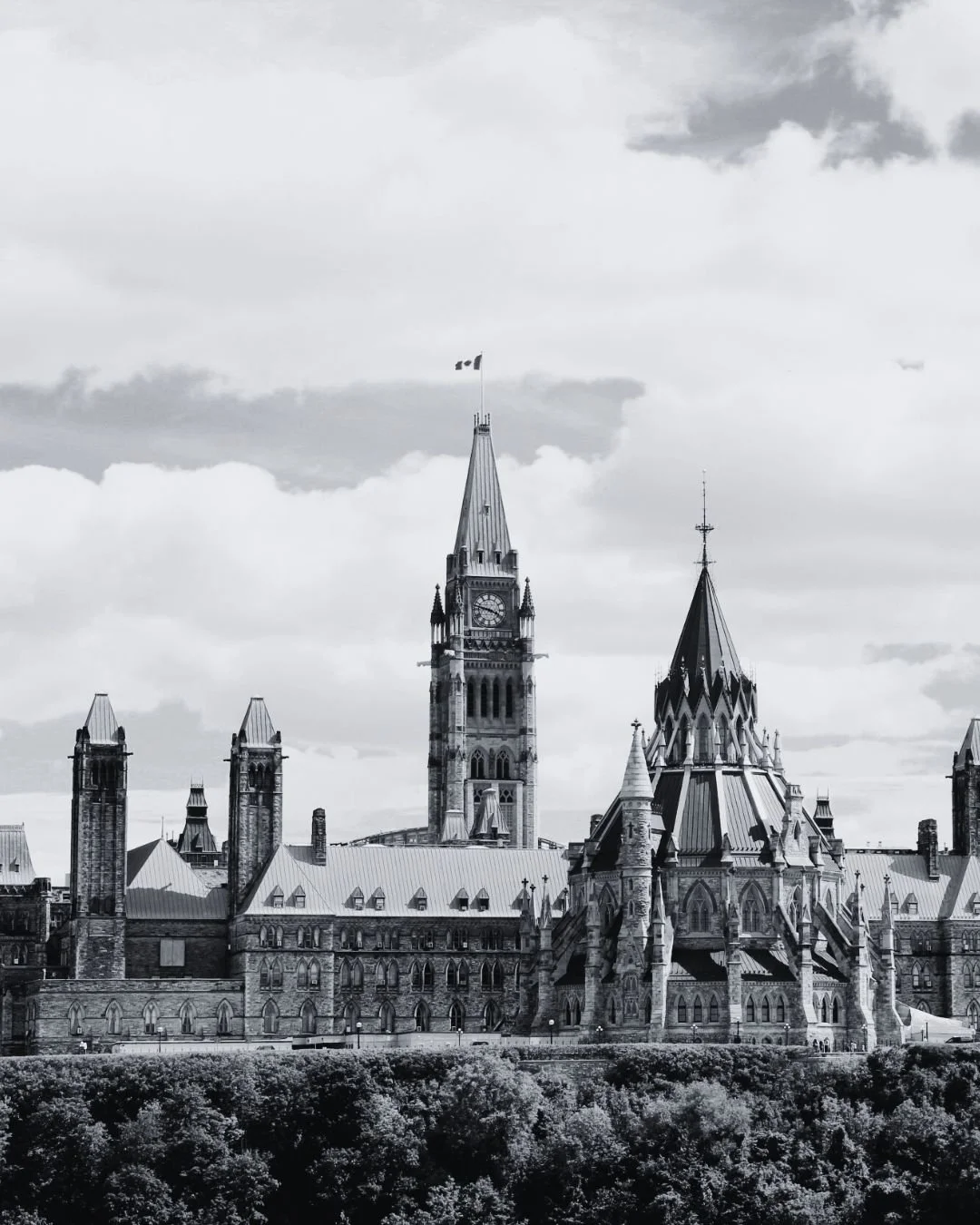
Latest Canadian Immigration News & Insights
Never miss important immigration updates and information on immigration processing and requirements. From Express Entry to Spousal Sponsorship to Study Permits, NextGen has you covered for all things Canadian immigration.

Can You Count Student Work Experience Toward Express Entry Canada?
To qualify under Federal Skilled Worker Program (FSWP), student work experience may count if it was paid, continuous, and skilled (TEER 0–3). This includes co-op placements, internships, and apprenticeships completed in Canada or abroad within the last 10 years.
However, student work experience does not count toward the minimum work requirement for the Canadian Experience Class (CEC) or the Federal Skilled Trades Program (FSTP).
To meet the one-year requirement (1,560 hours), applicants must complete at least 52 weeks of work. IRCC caps full-time work at 30 hours per week, meaning working more than 30 hours weekly (even across multiple jobs) does not allow you to qualify faster.
Finally, even if student work experience makes you eligible under FSWP, Canadian work gained while studying full-time does not increase your CRS score in the Express Entry pool.

Canadian Experience Class Applicants Receive ITAs in One of the Lowest CRS Draws Since 2024
Canada has issued 6,000 Invitations to Apply (ITAs) under the Canadian Experience Class (CEC) in one of the lowest CRS cut-offs since 2024, with a minimum score of 508.
Recent draw trends show a strong emphasis on inland applicants, particularly those under the Canadian Experience Class, signaling that temporary foreign workers and graduates with Canadian employment remain a priority in 2026. If you’ve received an ITA under CEC, the next 60 days are critical. From employment reference letters and medical exams to police certificates and accurate work history documentation, submitting a complete and compliant permanent residence application is essential to avoid delays or refusal.

Ways to Stay and Work in Canada: Work Permits and Extensions Explained
Canada has long been a top destination for international workers and students, but the immigration climate is becoming more challenging. Both temporary and permanent resident approvals have slowed, and it is expected that over 1 million temporary resident permits will expire in 2026. Despite these changes, there are still several pathways that allow skilled workers and young professionals to live and work in Canada. Some of the most popular options include IEC work permits, BOWP and OWP extensions, LMIA-based work permits, and the Francophone Mobility Program, though this list is not exhaustive and other pathways may also be available depending on your situation.

Canada Immigration in 2026: New Programs, Pathways & What You Need to Know
Canada’s immigration system continues to evolve in 2026, with policy changes focused on strengthening the economy, retaining talent already in Canada, and better aligning permanent residence pathways with labour market needs. These changes are especially relevant for temporary residents, skilled workers, and families planning long-term settlement in Canada.
Under the 2026–2028 Immigration Levels Plan, Canada is expected to admit approximately 380,000 permanent residents per year, with a strong emphasis on economic class immigrants.

Canada Launches New Express Entry Pathway for Doctors with Canadian Experience
IRCC has introduced a new Express Entry category for doctors with Canadian work experience, along with 5,000 reserved provincial spots and expedited work permit processing. This makes it easier for physicians to gain permanent residence and work in Canada’s healthcare system.

Understanding the Financial Requirements for Sponsoring Your Spouse or Common-Law Partner in Canada
Sponsoring a spouse or common-law partner to Canada is an important step for families wanting to live together in the country. One of the most frequently asked questions is:
“Do I need to prove my income to sponsor my spouse?”
The answer is reassuring. For spousal or common-law sponsorship, there is generally no minimum income requirement. Unlike other sponsorship categories, such as parents or grandparents, you do not need to meet a specific income threshold to be eligible.

Common Mistakes That Could Jeopardize Your Post-Graduation Work Permit in Canada
Applying for a Post-Graduation Work Permit (PGWP) in Canada can be a turning point for international students who want to stay and work after completing their studies. But with frequent updates to Canadian immigration rules, even simple mistakes can lead to a PGWP refusal. Understanding program eligibility, full-time study requirements, language testing, and the 180-day application deadline is essential for a successful application. In this guide, we break down the most common PGWP mistakes and how to avoid them, helping international graduates secure valuable Canadian work experience and confidently transition from student to skilled worker in Canada.

Canada Immigration Update 2026–2028: Pathways, Opportunities, and What You Need to Know
Canada’s 2026–2028 Immigration Levels Plan brings major changes for international students, temporary workers, and prospective immigrants. With permanent resident targets set at 380,000 annually and temporary resident admissions reduced, pathways like the Post-Graduation Work Permit, Express Entry, and new programs for H‑1B holders and international researchers offer strategic opportunities. International student admissions have dropped nearly 50%, and study permits are now more competitive due to caps and stricter eligibility requirements. Understanding these updates, including economic immigration priorities and credential recognition initiatives, is essential for success. Stay informed to navigate Canada’s evolving immigration system and maximize your chances of studying, working, and settling in Canada.

Understanding Visitor Status in Canada: What You Need to Know
Understanding visitor status in Canada is crucial for anyone planning a short-term stay. Whether entering with a Temporary Resident Visa (TRV) or an eTA, every entry is considered a new visit, and visitor status is typically granted for up to six months. Compliance with all conditions, including restrictions on work and long-term study, is essential to avoid refusals or future immigration issues. At NextGen Immigration, our experienced immigration consultants help visitors maintain legal status, extend their stay, and navigate transitions to work or study permits. Protect your Canadian immigration history and ensure smooth applications with professional guidance.

Filing a Common-Law Sponsorship with IRCC Canada When You Are Not Legally Divorced
Filing a common-law sponsorship in Canada while still legally married can be confusing under IRCC rules. The good news is that it’s possible if you can prove you’ve been separated from your spouse and have a genuine, continuous relationship with your common-law partner. This guide explains IRCC’s definition of common-law partnership, required proof of separation and cohabitation, and key documentation to strengthen your application. Learn how to avoid misrepresentation and ensure your sponsorship is processed smoothly.

Canada’s Emerging Opportunity for H‑1B Visa Holders: Why Now Is the Time to Consider Immigration To Canada
Recent sweeping changes to the U.S. H-1B visa program, including a $100,000 application fee and stricter caps, are creating uncertainty for skilled foreign workers, particularly in tech, engineering, research, and other high-demand sectors. As many H-1B holders explore alternatives, Canada is emerging as a compelling destination for global talent. Prime Minister Mark Carney has announced initiatives to attract foreign professionals, signaling Canada’s commitment to welcoming skilled workers and offering long-term career opportunities.
Canada previously introduced a special public policy for H-1B holders, allowing them to apply for open work permits and bring eligible family members, highlighting its willingness to act swiftly to attract international talent. Additionally, renewed diplomatic and trade ties with India could lead to streamlined pathways and incentives for highly skilled Indian professionals, who make up a significant portion of H-1B visa holders.

Canada Express Entry Support: Complete PR Pathway Explained
Looking to immigrate to Canada as a skilled worker? The Express Entry system is Canada’s most popular pathway for permanent residency, designed to bring in talented professionals who can contribute to the labour market. Express Entry covers three federal programs: Federal Skilled Worker (FSW), Canadian Experience Class (CEC), and Federal Skilled Trades (FST).
Through this points-based system, candidates are ranked using the Comprehensive Ranking System (CRS) and invited to apply for PR through regular draws. With new category-based draws in 2025 targeting French speakers, STEM professionals, healthcare workers, and tradespeople, opportunities are expanding for those with in-demand skills.
This complete guide explains how Express Entry works, who qualifies, costs involved, and how it compares to Provincial Nominee Programs (PNPs)—another key option for candidates with job offers, provincial ties, or lower CRS scores. Whether you’re aiming for Express Entry directly or boosting your score through a provincial nomination, this resource will help you understand your best pathway to Canadian permanent residency.

Most Asked Questions About Sponsoring Parents and Grandparents in Canada (2025)
Received an invitation for Canada’s Parents and Grandparents Program (PGP) 2025? We’ve compiled some of our most asked questions about eligibility, income requirements, deadlines, and application processing to help sponsors and their families navigate this year’s intake.

Work Permit in Canada: Types and Application Process Explained
Want to work legally in Canada? Discover everything you need to know about Canadian work permits, from open and closed types to step-by-step application tips. Learn which permit fits your situation, how to find employers willing to hire foreign workers, navigate LMIA requirements, and even use your work experience as a pathway to permanent residency.

Canada Introduces Upfront Medical Exams for Express Entry PR Applicants
Starting August 21, 2025, IRCC requires all Express Entry applicants and their family members to complete an upfront Immigration Medical Exam (IME) when submitting their permanent residence application. Previously, applicants waited for instructions after applying. Learn why medical exams are required, what the IME involves, costs, and how to use past medical exams for your application. Stay informed to ensure your Express Entry PR process is smooth and compliant with Canadian immigration requirements.

How to Sponsor Your Parents and Grandparents for Canadian Permanent Residence in 2025
Learn how to sponsor your parents or grandparents for Canadian permanent residence through the Parents and Grandparents Program (PGP). Find out what to do if you don’t meet the income requirement, including Humanitarian and Compassionate (H&C) options, application tips, and IRCC documentation steps.

Parents and Grandparents Program (PGP) 2025: Sponsorship Invitations Start July 28
If you’ve been waiting to reunite with your parents or grandparents in Canada, this could be your year. On July 28, 2025, Immigration, Refugees and Citizenship Canada (IRCC) will begin sending out invitations to apply (ITAs) under the Parents and Grandparents Sponsorship Program (PGP).
This year, IRCC will send 17,860 invitations over approximately 2 weeks. They will accept up to 10,000 complete applications.

Understanding Maintained Status in Canada’s Immigration System
Understanding Maintained Status in Canada’s Immigration System
If you’re in Canada on a temporary permit and your extension application is pending, understanding maintained status (previously called implied status) is essential. This status allows you to legally stay and continue working, studying, or visiting while Immigration, Refugees and Citizenship Canada (IRCC) processes your application provided you apply before your current permit expires. Learn the key rules, limitations, and practical tips to protect your legal status in Canada and avoid costly mistakes.

Our Top 17 FAQs About Canadian Immigration
If you're exploring your options for moving to Canada, you're not alone. Canadian immigration is a popular pathway for people around the world seeking a better quality of life, economic opportunities, and family reunification. At NextGen Immigration, we get asked a wide range of questions every day. To help you navigate the process, here are some of the most frequently asked questions and answers.

Where Common-Law Sponsorships Fail: Top Reasons and How to Avoid Them
Avoiding Common-Law Sponsorship Refusals: What You Need to Know
Common-law sponsorship is a well-established pathway for Canadian citizens and permanent residents to reunite with their partners in Canada. But despite its popularity, many applications are refused due to preventable mistakes. Understanding what qualifies as a common-law relationship under Canadian immigration law is essential for a successful application.
According to IRCC, you must have lived together in a conjugal relationship for at least 12 continuous months, supported by strong documentation. Simply living together isn't enough proof like joint leases, shared bills, and bank accounts is crucial. Many couples are surprised when applications fail due to inadequate cohabitation evidence, conflicting documents, or poorly written relationship timelines.
Genuineness is also key. Immigration officers look for signs of an authentic, committed relationship not one entered into for immigration purposes. If your documents, photos, or personal statements appear staged or inconsistent, you risk refusal.
Avoid common pitfalls by staying organized, documenting everything, and choosing the right sponsorship stream inland or outland. For best results, consider working with a licensed immigration consultant who understands what IRCC looks for in a successful common-law sponsorship application.
